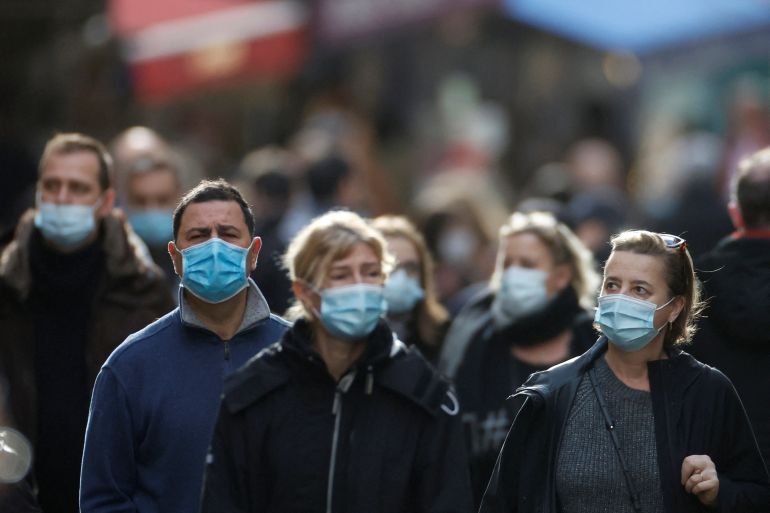Goal of ending extreme poverty by 2030 out of reach, report says
Effects of COVID pandemic and war in Ukraine make it unlikely for the world to eradicate extreme poverty by decade’s end, World Bank says.

The world is unlikely to meet a longstanding goal of ending extreme poverty by 2030, the World Bank has said, citing the effects of “extraordinary” shocks to the global economy, including the coronavirus pandemic and the war in Ukraine.
In a new report released on Wednesday, the World Bank said higher food and energy prices had hindered a quick recovery after COVID-19 dealt the “biggest setback” to global poverty in decades.
Keep reading
list of 3 itemsDesperate Afghans sell kidneys amid poverty, starvation
Pandemic health costs pushed half a billion people into poverty
It added it expected the pace of poverty reduction to further stall this year as global growth prospects fade following Russia’s invasion of Ukraine, an economic slowdown in China and rising inflation.
“Given current trends, 574 million people – nearly 7 percent of the world’s population – will still be living on less than $2.15 a day in 2030, with most in Africa,” the Poverty and Shared Prosperity report said.
In a statement, World Bank President David Malpass called for major policy changes to boost growth and help jumpstart efforts to eradicate poverty.
“Progress in reducing extreme poverty has essentially halted in tandem with subdued global economic growth,” he said, blaming inflation, currency depreciations and broader overlapping crises for the rise in extreme poverty.
Indermit Gill, the World Bank’s chief economist, said failure to reduce poverty in less advanced economies would have profound implications for the world’s broader ability to combat, among others, the climate crisis.
It would also limit growth in advanced economies, since extreme poverty rates would prevent these often heavily populated developing countries from becoming bigger consumers of goods on the global market.
“If you care about prosperity in advanced economies, sooner or later you want these countries to have large markets, countries like India, countries like China,” Gill said. “You also want these countries to grow so they actually start to become sources of demand and not just supply.”
To change course, the World Bank said countries should boost cooperation, avoid broad subsidies, focus on long-term growth and adopt measures such as property taxes and carbon taxes that could help raise revenue without hurting the poorest people.
Its report noted that more than three billion people live on less than $6.85 per day, which is the average of the national poverty lines of upper-middle-income countries.
It said poverty reduction had already slowed in the five years leading up to the pandemic, and the poorest people clearly bore its steepest costs. The poorest 40 percent of people saw average income losses of 4 percent during the pandemic, twice the losses experienced by the wealthiest 20 percent, the World Bank said.
Government spending and emergency support helped avert even bigger increases in poverty rates, the report showed, but the economic recovery had been uneven, with developing economies with fewer resources spending less and achieving less.
Extreme poverty was now concentrated in the countries of sub-Saharan Africa, which has a poverty rate of about 35 percent and accounts for 60 percent of all people in extreme poverty, the report said.
“Over the next decade, investing in better health and education will be crucial for developing economies,” Gill said.